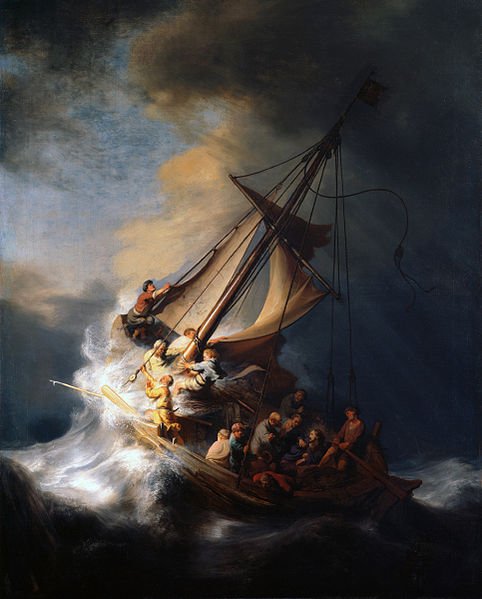Not God is the phrase they use in AA for realizing we are, well … not God.
And no, I’m not an alcoholic.
No really — I’m not.
Not God is also the answer to the question, WTF? What is wrong with people, this place, my parents, and our upbringing, education, choices and decisions, and probably our shoes, while we’re at it?
Not God.
We had come to see and say there is something wrong with God, or the world entire, or with Christians, and then we decided two out of three are bad, and maybe we’d better do something about it. God wins.
So we begin to obey.
We study, memorize, go there and get the shirt. We join core groups, X groups, cell groups. We get our very own gen-you-whine accountability partner. We make promises, make plans, make it a little way in that way … then we make problems, make new promises, we make pacts with God, we make progress.
We begin to doubt.
Hath God said …
Ye shall surely die?
*
Oh Lord, what fools we mortals be.
Or Man, how numbingly average art our sins.
Obedience becomes a snare. It is, to the men, a naked female body suggestion assignation and swearing adoration — not to mention fealty. You take care of me, and the Church will take care of you. Maybe a woman sees it as cake, or beefcake, or a cake all-natural handmade soap. And a tub. And three hours of free time.
But I see I’ve imagined a naked woman again.
Obedience is a snare.
*
Obedience is the rat race and, as Lily Tomlin observed, even if you win you’re still a rat. And rats desert a sinking ship, as you may know. Perhaps dissent is the answer.
Except dissent can get you thrown off the ship entirely.
*
So for a long time (it seems to me) I have thought principled and consistent dissent the highest lyric of our Christian life. It is not. The highest form of that life is trust.
Did we not trust at the first? Yes, a smidge. That’s what makes it kind of round and paradoxical and fun: it ends there, and in a small way it started there.
Like Frederick Buechner’s locution on love —
The beginning stage of love is to believe there is only one kind of love.
The middle stage of love is to believe there are many kinds of love, and the Greeks had a word for each.
The ending stage of love is to believe there is only kind of love.
But at that first we lived by sight, not by faith. Functionally, I mean — consistently and most often — we depended on what we could see, not on Whom we believed. We could see rules and law. We could know (visibly) when we did X there was (also visible) penalty Y and solution (again visible) Z.
These were manmade mostly, but I don’t mean that as dig. We did our best.
But at that time — I mean, as I’m calling it here, during Obedience — we didn’t do His best.
For that we needed to begin to question, to doubt again — to, as I’m calling it here, Dissent.
And so we come to Trust.
*
We lived by sight not by faith. We began to suspect, as I said on the previous bridge, there was something wrong with God, or the world entire, or at least with other Christians. Two out of three ain’t bad, I said. In trust we realize that while the “two” are still Christians and the world entire … the third isn’t God.
It’s us.
We stand humbly with Pogo on that one. As we move from dissent to trust, we realize it’s not God who’s jacked, but we ourselves. Ourselves alone, as my Irish forebears might put it, meaning something else yes — and something that, being necessary, fits.
*
This short essay — the three main ones together with two bridges and a launch — asserts that each of the three — obedience, dissent, trust — aren’t just linear but advancement. The move from first to second is, I believe, easier than from second to third.
And I still like the image of the wave, even with its occasional crashing. Because you can surf waves, and sail them, and even, it has been reported, walk upon them.
*
We start in faith über-obediently — which, yes, is like saying “very unique” … but truthily we know Christians who took sin and obedience rather more seriously until we realized (as Adam and Eve?) it doesn’t always result in our immediate death.
This is obedience, and it’s good and necessary and can even save our lives.
Later we say a Christian “makes his faith his own,” or she comes into a maturity unknown and previously unowned. Of course we’re not always comfortable with the conclusions someone comes to when thinking different; their thoughts are not our thoughts.
That’s dissent, and it can be a difficult time; it can even end up killing us.
Then there is Peter. We can be reliably uncertain about what he’s going to do, because trust means we do not always know ahead of time, or agree when we find out — but in the moment we do it. How can such behavior be charted out except to say we get out of the boat?
So there we have trust. It includes elements of both obedience and dissent.
And it is life itself.
*
Noah, Jonah, and Peter.
Three sailors who can show something of the arc (no pun intended) of our Christian life: a parable — but not a parabola. It’s a gradually ascending, oft curling, occasionally crashing, line. It’s like a wave, really.
*
You’re in a boat …
